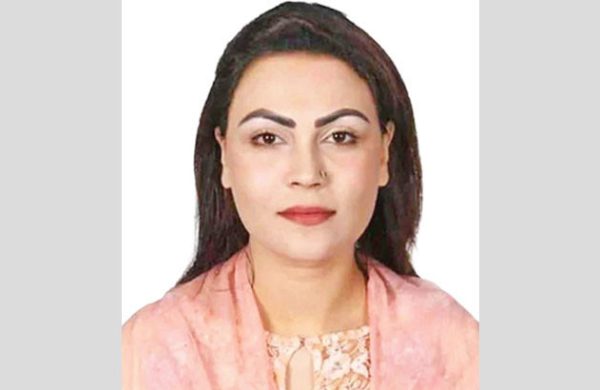Nobel Prize in Economics and Institutions Matters
- Update Time : Tuesday, November 5, 2024

---Nironjan Roy---
This year Nobel Prize in Economic Science has been awarded jointly to three economists, Daron Acemoglu, Simon Johnson and James Robinson. Their contribution taken into consideration and recognised with awarding this world’s prestigious prize is described in a small phrase “institutions matter”.
Their research and findings in the field of economics cover the area where some countries prosper extraordinarily while others fail due to differential contributions made by the concerned institutions. In their work, this trio has tried to find out that in spite of pursuing the same economic principle, why some countries succeed and why some countries fail. They found that some countries prospered because responsible institutions in those countries performed well; and some countries failed because they either had performing institutions or had no institutions at all.
Economist Daron Acemoglu was born in Turkey, while Simon Johnson and James Robinson were born in the UK. Acemoglu and Johnson are professors at MIT (Massachusetts Institute of Technology), while Robinson is a professor of Economics at the University of Chicago, and all of them became American citizens. Although three individual economists have been awarded the Nobel Prize this year, they have been close associates for long and have worked together on many areas of economics. Acemoglu and Robinson were co-authors of the book “Why Nations Fail: The Origins of Power, Prosperity and Poverty”, which was first published decades ago. Johnson served as chief economist of the International Monetary Fund from March 2007 to August 2008.
It is learnt from the report published in the local media that Acemoglu met Johnson first time at MIT in the late 1990s. Soon after, these three economists started working and understanding why some former colonies, such as the United States of America, and Australia had extraordinarily prospered, while others, such as sub-Saharan Africa, had not. Their key findings were some elements that could explain the difference in the systems colonists set up in one place versus another.
Three economists have extensively worked in the field of the history of colonialism and the economies where institutions have impacted different ways, especially in the protection of property rights and the way political decisions have been made. During the last quarter century, they have written a series of books and papers documenting why some countries viz. Britain, the USA and Japan have been successful in thriving riches. In the same papers, they have shown why some countries viz. Sierra Leone, Uzbekistan and North Korea have miserably failed. The most important feature of their studies is that these three economists have not been biased by differences in geography and culture, instead, they have focused on the consequence of the institutions which emerged in those countries.
Although these three Nobel laureates are economists by profession and their work was on economic prosperity among different states, political issues have not remained untouched. At a certain point in their research, they have opined that democracies are better at delivering prosperity over the long run. At the same time, they have acknowledged that authoritarian governments can also be effective at exploiting the existing resources, such as raw materials or workforces, but authoritarian governments technically fail to innovate, which on the contrary, is the advantage of democracy. They have further cautioned that authoritarian governments, which though yielded some desired results in the short run, do not afford to sustain in the long run. As a reference, Acemoglu has mentioned that China’s recent performance is “a challenge” to that broad finding and also said that democracies have been “going through a rough patch”.
In their research, this trio has shown that these institutional differences between haves and have-nots are found to have occurred across the world. They state that successful countries established inclusive political and economic institutions that have coordinated and helped each other deliver effectively. Inclusive economic institutions, which among others include, an education system, market economy and functioning financial system, encourage economic participation by the country’s people. On the other hand, inclusive political institutions ensure the sharing of economic power and creating of virtuous cycle.
In a contrary view, they mentioned that extractive economic and political institutions create an environment facilitating the country’s elite group who can grab onto economic power backed by the state. In this situation, common people become less interested in engaging themselves in the economy, fully knowing that the fruits of their efforts could be arbitrarily taken away. The Nobel winners have tried to address one of the most crucial aspects of economics and found it one of the major problems; why some countries have become ultra-rich by historical standards over the past few centuries.
Every year announcing the Nobel Prize in economics draws immense attention and much appreciation followed by a series of discussions and writings. A sort of exception is noticed this year because direct economic theory or monetary principle has not been recognised as the contribution of this prestigious prize, instead, an indirect approach combining economic and non-economic aspects highlighted by three economists has been taken into consideration for awarding this prize. The research undertaken jointly by Daron Acemoglu, Simon Johnson and James Robinson focused on the historical roots of poverty and prosperity where institutions play a more important role.
____________________________________
The writer is a certified anti-money laundering specialist and banker based in Toronto, Canada. Email: [email protected]



















